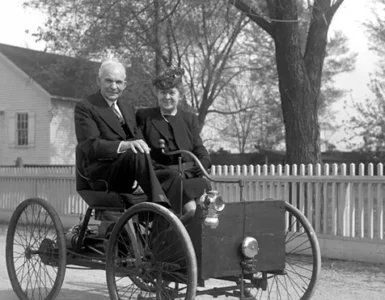Ilaiyaraaja is one of India’s most influential music composers. His unique style blends Indian classical music with Western elements, revolutionizing Indian film music. This article will explore his early life, career, and lasting impact on the music industry.
Early Life
Ilaiyaraaja was born on June 2, 1943, in Pannaipuram, Tamil Nadu, India. His birth name was R. Gnanathesikan, but he later adopted the name Ilaiyaraaja. Growing up in a musical family, he developed an early passion for music. His mother and siblings played an active role in shaping his musical interests.
During his childhood, he was exposed to traditional folk music, which would influence his future compositions. He also explored Indian classical music and Western styles, deepening his understanding of various musical forms. His early exposure to music, combined with his family’s support, set him on the path to becoming a composer.

Ilaiyaraaja’s Early Career
In the 1960s, Ilaiyaraaja joined the “Pavalar Brothers,” a traveling music troupe. He performed across South India, gaining experience in composing and performing music. Writing songs for the troupe helped him sharpen his skills and develop his unique style.
In 1968, Ilaiyaraaja decided to pursue formal music training. He enrolled at the Trinity College of Music in London, where he studied Western classical music. His education at Trinity College gave him a strong foundation in orchestration and arrangement, which he later incorporated into his work in Indian cinema.
Ilaiyaraaja’s Entry into the Film Industry
Ilaiyaraaja made his debut as a film composer in 1976 with the Tamil movie Annakili. The soundtrack was an instant success, introducing a fresh sound to Tamil cinema. Unlike existing trends in film music, Ilaiyaraaja’s style combined Indian folk tunes with modern instruments and Western classical elements. His music in Annakili stood out for its emotional depth and simplicity.
The success of Annakili quickly established him as a leading composer in South Indian cinema. Over the next few years, he worked on several films, creating hit soundtracks that resonated with audiences.
Ilaiyaraaja’s Signature Style
Ilaiyaraaja’s ability to blend different musical traditions made his work stand out. He seamlessly combined Indian classical music, folk tunes, and Western orchestral styles. His use of orchestration added depth to the emotional tone of scenes in films. He often used Western instruments like violins, pianos, and guitars, alongside traditional Indian instruments such as the veena and tabla.
His music is known for its complex time signatures and intricate rhythms. He often experimented with unconventional beats, making his compositions distinct yet widely appealing.

Ilaiyaraaja’s Contributions to Indian Cinema
Ilaiyaraaja has composed music for over 1,000 films in languages like Tamil, Telugu, Malayalam, Kannada, and Hindi. He dominated South Indian film music during the 1980s and 1990s. Some of his most memorable works include soundtracks for films like Sagara Sangamam, Mouna Ragam, Punnagai Mannan, and Nayakan.
In addition to his work in films, Ilaiyaraaja has composed non-film albums and symphonies. He is credited with composing India’s first symphony, performed by the Royal Philharmonic Orchestra in London. This achievement highlighted his versatility as a composer, capable of working in both Indian and Western musical traditions.
Ilaiyaraaja’s Collaboration with Directors
Ilaiyaraaja worked closely with many notable directors in Indian cinema. His partnership with Tamil filmmaker Mani Ratnam is particularly famous. They collaborated on iconic films such as Mouna Ragam, Nayakan, and Anjali. Their work together revolutionized the use of music in storytelling.
His collaboration with director Balu Mahendra also stands out. They worked together on films like Moondram Pirai and Veedu, where Ilaiyaraaja’s background scores played a significant role in enhancing the films’ emotional impact.
Awards and Recognition
Throughout his career, Ilaiyaraaja has received numerous awards for his contributions to music. He won the prestigious National Film Award for Best Music Direction five times. In 2010, he was honored with the Padma Bhushan, India’s third-highest civilian award. In 2018, he received the Padma Vibhushan, the second-highest civilian award.
His work has also gained international recognition. His compositions have been featured in global film festivals and concerts, showcasing his music to audiences worldwide.
Influence on Future Generations
Ilaiyaraaja’s influence extends far beyond his own compositions. Many of today’s top composers and musicians credit him as a key influence. His innovative approach to blending various musical styles has inspired a new generation of artists to experiment with their music.
Composers like A. R. Rahman, Harris Jayaraj, and Yuvan Shankar Raja have all acknowledged the impact of Ilaiyaraaja on their work. A. R. Rahman, in particular, praised Ilaiyaraaja for transforming film music and opening new possibilities for future composers.
Later Career and Legacy
Although Ilaiyaraaja’s dominance in the industry has lessened in recent years, he continues to compose music for films and other projects. His recent works include soundtracks for movies like Cheeni Kum and Paa. Despite changes in the music industry, Ilaiyaraaja’s compositions remain relevant and continue to captivate listeners.
His legacy as a composer is unmatched. He has left an indelible mark on Indian cinema, and his music is loved by millions. His ability to fuse different musical styles has made him a unique figure in the world of music, and his influence will continue to inspire future generations.
Conclusion
Ilaiyaraaja stands as a musical genius whose work has shaped the landscape of Indian cinema. His fresh approach to music set him apart from other composers and earned him a legendary status. His journey, from humble beginnings to becoming one of the most celebrated music directors, shows his passion and dedication to his craft.
Today, Ilaiyaraaja’s music continues to inspire listeners across the world. His contributions have transcended cultural and language barriers, making him one of the most important figures in Indian music history.






Add comment